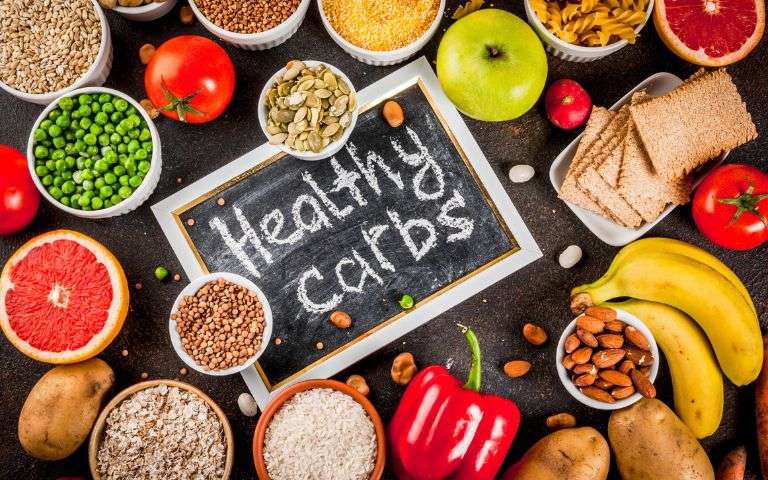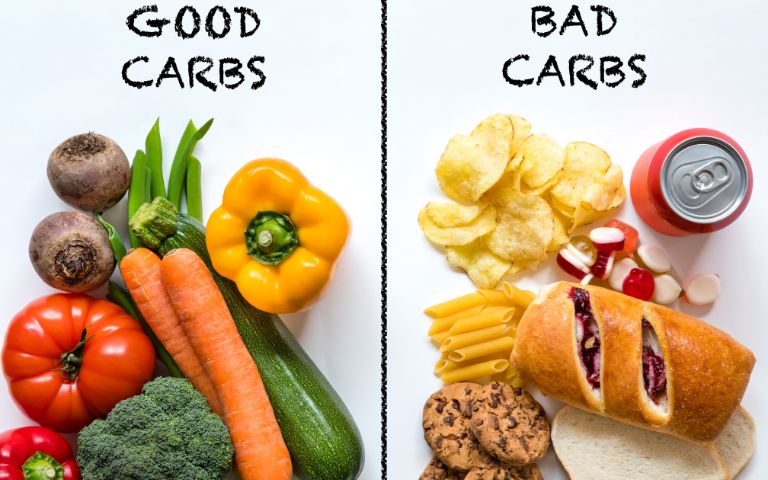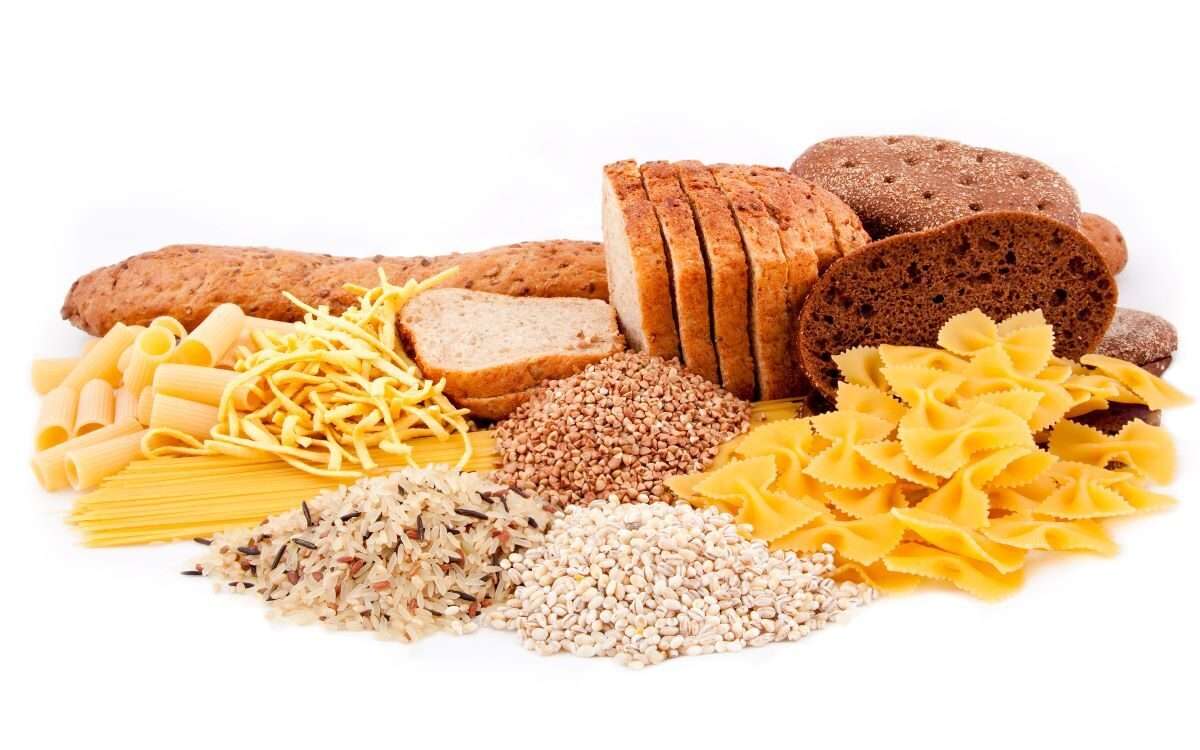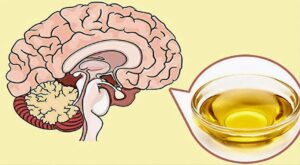Carbohydrates are among the most hotly debated topics in health and nutrition. Some experts and many popular diet trends blame them, especially refined types like white bread, sugary snacks, and ultra-processed foods, for the rising rates of obesity, type 2 diabetes, and heart disease. Others argue this perspective is overly simplistic, noting that many nutrient-rich foods like fruits, vegetables, and whole grains are also high in carbohydrates.
The concern is understandable. In the U.S., more than 40% of adults are classified as obese. Worldwide, nearly 1 in 10 people live with type 2 diabetes, and heart disease remains the leading cause of death globally, claiming around 17.9 million lives each year, according to the World Health Organization. With numbers like these, it’s natural to look for someone to blame. And carbohydrates often become the scapegoat.
But is that fair? Are carbohydrates truly the root cause, or is the real issue more complex?
In this article, we take a closer look at what the science actually says. We’ll examine how different types of carbs affect the body, why refined carbohydrates may contribute to disease, and how healthy carbs can actually protect your health.
What are Carbohydrates?

Carbohydrates are one of the three macronutrients the body requires in large amounts (the other two being protein and fat). They are made up of sugar molecules and serve as the body’s primary source of energy.
When you eat carbs, your body breaks them down into glucose, which is then absorbed into the bloodstream. The hormone insulin helps transport this glucose into cells for immediate energy or stores it as glycogen in the liver and muscles.
But not all carbs function the same. The type, quantity, and frequency of consumption dramatically affect how your body responds.
Types of Carbohydrates
- Simple Carbohydrates: These are composed of one or two sugar molecules (monosaccharides and disaccharides). Examples include table sugar, syrup, fruit juice, and candy. They digest quickly and can cause rapid spikes in blood sugar.
- Complex Carbohydrates: These contain longer chains of sugar molecules (polysaccharides) and are found in whole grains, legumes, and vegetables. They digest more slowly, leading to a more gradual blood sugar response and longer-lasting energy.
Natural vs. Refined Carbohydrates
A more practical and health-relevant distinction is between natural and refined carbs.
- Natural Carbohydrates are found in whole foods like fruits, vegetables, legumes, and whole grains. These foods contain fiber, antioxidants, vitamins, and phytochemicals that help protect against disease.
- Refined Carbohydrates are processed to remove fiber and nutrients. Examples include white bread, pastries, sugary cereals, and sweetened beverages. These carbs are often “empty calories” that can promote overeating and metabolic disruption.
Role of Carbs in Metabolism and Wellness
Carbohydrates are vital to human survival and performance, especially for brain function, which relies heavily on glucose. But the body’s relationship with carbs is nuanced:
- In a balanced diet, carbs support energy, hormonal balance, athletic performance, and even serotonin production for mood.
- In excess or poor-quality forms, carbs can overload the system, leading to insulin spikes, fat storage, and cellular stress.
Scientific Context
- When you consume more carbohydrates than your body needs, especially quickly absorbed ones, the excess is converted into fat through a process called de novo lipogenesis, particularly when liver glycogen stores are full.
Recommended Intake
Most major health organizations recommend a balanced intake:
- WHO: 55–75% of total energy intake from carbohydrates, primarily from whole foods.
- USDA: 45–65% of daily calories from carbohydrates.
The Growing Concern Over Carbohydrate Overconsumption
While carbs aren’t inherently harmful, modern diets contain far too many of the wrong kinds. According to the CDC, over 60% of Americans’ daily caloric intake comes from ultra-processed foods, most of which are loaded with refined carbs and added sugars.
Another recent survey conducted by a media organization among 1,000 individuals aged 15 and older examined the impact of excessive carbohydrate consumption. The results revealed that six out of ten South Koreans are at risk of health issues due to excessive carbohydrate intake.
- 64.5% of respondents were classified as being at risk of excessive carbohydrate consumption.
- 9.3% were already in the “carbohydrate addiction” stage.
- 55.2% had concerns about their excessive carbohydrate intake.
Result?
A population that’s often in a state of postprandial hyperglycemia (elevated blood sugar after meals), leading to higher risks of metabolic diseases.
Carbohydrates and Chronic Diseases: What the Evidence Says

A. Obesity and Weight Gain
Carbohydrates, especially refined ones, can influence weight gain through their effects on insulin and satiety.
- Insulin Response: High-glycemic carbs spike insulin levels, promoting fat storage and potentially leading to insulin resistance.
- Satiety Differences: Whole grains and fibrous carbs promote fullness, while refined carbs can lead to overeating.
- Research: A 2020 meta-analysis found that low-carb diets led to more significant weight loss than low-fat diets in the short term, especially among those with insulin resistance.
Type 2 Diabetes and Insulin Resistance
Chronically high carb intake, especially from high-glycemic foods, can overload insulin pathways.
- High-Glycemic Diets: Linked to increased risk of type 2 diabetes.
- Hyperinsulinemia: Constantly high insulin levels precede insulin resistance and diabetes.
- Low-Carb Interventions: Studies show that ketogenic diets can significantly reduce HbA1c and even reverse type 2 diabetes in some cases.
Cardiovascular Disease (CVD)
Carbohydrates impact lipid profiles, but carb quality often matters more than quantity.
- Refined Carbs: Raise triglycerides, lower HDL (good) cholesterol, and increase small, dense LDL particles, factors associated with higher heart disease risk.
- Whole-Food Carbs: High-fiber carbs (e.g., oats, legumes) improve cholesterol levels and reduce inflammation.
- Supporting Data: A 2021 review in Nutrients emphasized that fiber-rich carbohydrates are protective against CVD.
Non-Alcoholic Fatty Liver Disease (NAFLD)
Excess carb intake, particularly fructose, plays a role in liver fat accumulation.
- High Fructose Intake: Especially from sugary beverages, directly contributes to liver fat synthesis (de novo lipogenesis).
- Insulin Resistance: Carb-induced liver fat worsens insulin sensitivity.
- Evidence: Studies show that reducing carb intake, even without calorie restriction, improves NAFLD markers.
Cancer and Inflammation
Emerging research connects high-carb diets with increased cancer risk and chronic inflammation.
- Insulin and IGF-1: High insulin levels may promote cell growth via the insulin-like growth factor (IGF-1) pathway.
- Inflammatory Markers: High-sugar diets increase CRP and IL-6, key inflammatory biomarkers.
- Limitations: While associations exist, more causal research is needed.
What Makes Carbohydrate Restriction So Appealing?
Low-carb and ketogenic diets have surged in popularity and for good reason:
- Rapid initial weight loss due to reduced water retention (each gram of stored glycogen holds ~3g of water).
- Better blood sugar control, particularly for individuals with insulin resistance.
- Appetite suppression, as fats and proteins are more satiating than carbs.
Psychological drivers:
Many people also find low-carb diets appealing because they offer structure, clear rules, and visible short-term results. This can be especially motivating for individuals who have struggled with traditional calorie-counting or “everything in moderation” approaches.
The Key Benefits of Carbohydrate Restriction
While not necessary for everyone, strategic carbohydrate restriction can offer profound benefits in specific contexts:
1. Blood Sugar Regulation
A 2021 PMC review found that low-carb diets can improve blood sugar control and reduce or even eliminate the need for type 2 diabetes medications.
2. Reduced Triglycerides and Belly Fat
Low-carb diets have been shown to reduce harmful visceral fat, a key marker for heart disease, more effectively than low-fat diets.
3. Mental Clarity and Reduced Brain Fog
Some individuals report enhanced mental clarity and stable energy levels on a ketogenic diet, possibly due to more consistent blood sugar and the brain’s use of ketones as an alternative fuel.
4. Lower Inflammatory Markers
C-reactive protein (CRP), a marker of inflammation, often drops when people cut out refined carbs and sugars.
Not All Carbohydrates Are Created Equal

Lumping all carbs together is misleading. Whole-food carbohydrates have dramatically different effects compared to ultra-processed ones.
- Whole-Food Carbs: Rich in fiber, polyphenols, and resistant starch nutrients that support gut health and reduce inflammation.
- Ultra-Processed Carbs: Often stripped of nutrients and spiked with additives, leading to blood sugar imbalances and overconsumption.
Example: Blue Zone populations (e.g., Okinawans, Sardinians) eat high-carb diets rich in legumes, whole grains, and tubers yet have low rates of chronic diseases.
Practical Recommendations
Instead of eliminating carbs, focus on their source and context:
- Prioritize Quality: Eat whole grains (e.g., quinoa, oats), legumes, fruits, and vegetables.
- Limit Refined Carbs: Avoid sugary beverages, white bread, pastries, and ultra-processed snacks.
- Personalize Intake: Adjust based on health status, metabolic function, and activity level.
- Balance Your Plate: Pair carbs with protein, fiber, and healthy fats to stabilize blood sugar.
How PBM Therapy Complements a Balanced Carb Strategy
While improving your carbohydrate quality and moderating intake is foundational for long-term health, addressing cellular dysfunction and chronic inflammation is equally important, especially for people already dealing with metabolic syndrome, insulin resistance, or fatigue.
That’s where Photobiomodulation (PBM) therapy comes in.

PBM uses red and near-infrared light to stimulate the mitochondria, the powerhouses of your cells, to produce more ATP (cellular energy), reduce oxidative stress, and promote systemic healing. Here’s how it ties into the themes of this article:
1. PBM Improves Mitochondrial Function
Highly refined-carb diets can impair mitochondrial efficiency and contribute to metabolic diseases. PBM therapy helps reverse this damage by stimulating cytochrome c oxidase, a key enzyme in cellular respiration, enhancing ATP production and cellular metabolism.
2. Reduces Inflammation from Poor Carb Metabolism
Refined carbohydrates and blood sugar imbalances can trigger chronic low-grade inflammation, a hallmark of nearly all chronic diseases. PBM has been shown to reduce inflammatory markers like CRP, TNF-alpha, and IL-6, supporting a healthier internal environment.
3. Supports Insulin Sensitivity and Glucose Regulation
Emerging studies suggest PBM can improve insulin sensitivity by enhancing microcirculation and reducing inflammation in insulin-responsive tissues. This makes it a promising adjunct for people dealing with type 2 diabetes or prediabetes.
4. Enhances Fat Metabolism
When combined with a low-carb or ketogenic diet, PBM can further support fat oxidation, particularly in the liver and skeletal muscle, helping reduce visceral fat and improve energy availability.
A Holistic Approach to Chronic Disease Prevention
Instead of choosing between dietary change and therapeutic interventions, the best outcomes often come from synergizing both. A diet rich in whole, natural carbohydrates paired with PBM therapy can:
- Restore mitochondrial balance
- Reduce systemic inflammation
- Improve metabolic flexibility
- Support long-term energy and cellular resilience
If you’re trying to regain control of your health, whether it’s managing blood sugar, losing weight, or just feeling more energized, PBM therapy is a powerful, science-backed tool that can complement and accelerate your progress.






